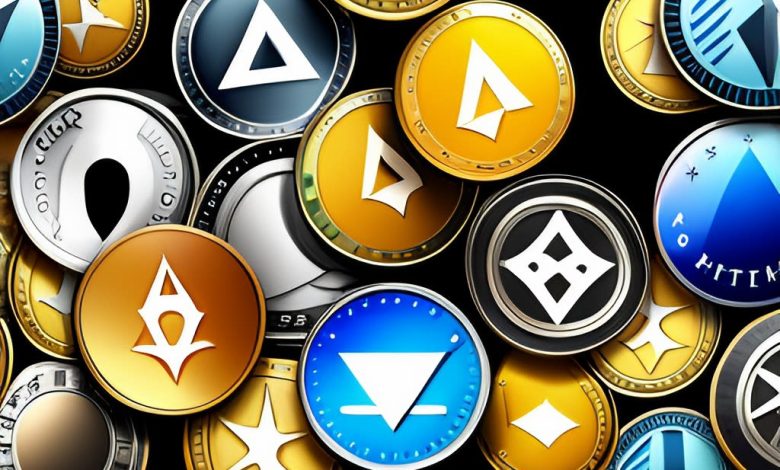The Rise of Altcoins: What’s Next?

- Understanding the Altcoin Market
- The Evolution of Altcoins
- Challenges and Opportunities for Altcoins
- Regulatory Landscape for Altcoins
- Investing in Altcoins: Tips and Strategies
- The Future of Altcoins: Trends and Predictions
Understanding the Altcoin Market
The altcoin market is a dynamic and rapidly evolving sector within the cryptocurrency industry. Altcoins, or alternative cryptocurrencies, have gained significant popularity in recent years as investors seek to diversify their portfolios beyond Bitcoin. Understanding the altcoin market is crucial for anyone looking to capitalize on the potential opportunities it presents.
One key aspect of the altcoin market is the wide variety of coins available for trading. From well-established altcoins like Ethereum and Litecoin to newer projects with innovative features, there is no shortage of options for investors to choose from. Each altcoin has its own unique characteristics and use cases, making it important for investors to conduct thorough research before making any investment decisions.
Another important factor to consider in the altcoin market is market volatility. Altcoins are known for their price fluctuations, which can be much more pronounced than those of traditional assets. While this volatility can present opportunities for significant gains, it also carries a higher level of risk. Investors should be prepared for the possibility of sharp price swings and take steps to mitigate their exposure to potential losses.
In addition to price volatility, the altcoin market is also influenced by a range of other factors. These can include regulatory developments, technological advancements, and market sentiment. Staying informed about these factors can help investors make more informed decisions and adapt their strategies to changing market conditions.
Overall, the altcoin market offers a wealth of opportunities for investors who are willing to do their homework and take calculated risks. By understanding the unique characteristics of different altcoins, staying informed about market trends, and managing risk effectively, investors can position themselves for success in this exciting and fast-paced market.
The Evolution of Altcoins
Altcoins have come a long way since the inception of Bitcoin in 2009. These alternative cryptocurrencies have evolved significantly over the years, offering a wide range of features and functionalities to users. Let’s take a closer look at the evolution of altcoins:
- Diversification: Initially, altcoins were created as alternatives to Bitcoin, offering different mining algorithms, transaction speeds, and privacy features. This diversification allowed users to choose a cryptocurrency that best suited their needs.
- Technological Advancements: As the demand for altcoins grew, developers started incorporating new technologies such as smart contracts, decentralized applications (dApps), and proof-of-stake (PoS) consensus mechanisms. These advancements made altcoins more versatile and efficient.
- Market Competition: With thousands of altcoins now available in the market, competition has become fierce. Projects are constantly innovating to stay ahead, leading to the development of unique use cases and value propositions.
- Regulatory Challenges: Altcoins have faced regulatory challenges in various jurisdictions, leading to increased scrutiny and compliance requirements. Some altcoins have implemented privacy features to protect user data and transactions.
- Integration with Traditional Finance: Many altcoins are now being integrated into traditional financial systems through partnerships with banks, payment processors, and other institutions. This integration has helped improve liquidity and accessibility for users.
Overall, the evolution of altcoins has been marked by innovation, competition, and adaptation to changing market conditions. As the cryptocurrency landscape continues to evolve, altcoins are expected to play a significant role in shaping the future of finance.
Challenges and Opportunities for Altcoins
Altcoins face a number of challenges and opportunities as they continue to gain traction in the cryptocurrency market. These alternative coins offer unique features and functionalities compared to Bitcoin, but they also face competition and regulatory hurdles.
One of the main challenges for altcoins is establishing themselves as legitimate and trustworthy investments. With so many new coins entering the market, investors must be cautious and do their due diligence before investing in any altcoin. This can be a barrier for newer altcoins looking to attract investors.
On the other hand, altcoins also present opportunities for innovation and growth in the cryptocurrency space. Many altcoins are built on new technologies that offer faster transaction speeds, lower fees, and increased privacy. These features can attract users looking for alternatives to Bitcoin.
Regulatory challenges also loom large for altcoins, as governments around the world grapple with how to regulate these new forms of currency. Some countries have embraced altcoins, while others have cracked down on their use. This regulatory uncertainty can create volatility in the altcoin market.
Overall, altcoins have the potential to revolutionize the way we think about money and finance. By addressing the challenges they face and seizing the opportunities for growth and innovation, altcoins can continue to make a significant impact on the cryptocurrency market.
Regulatory Landscape for Altcoins
The regulatory landscape for alternative cryptocurrencies, or altcoins, is a complex and evolving one. As these digital assets continue to gain popularity and market share, regulators around the world are taking notice and considering how to best oversee this new form of finance.
**One** key aspect of altcoin regulation is determining whether these assets should be classified as securities. The Securities and Exchange Commission (SEC) in the United States, for example, has been actively involved in determining which altcoins should be considered securities and therefore subject to securities laws. This classification can have significant implications for how altcoins are traded and regulated.
**Another** important consideration in altcoin regulation is consumer protection. Given the decentralized and often anonymous nature of many altcoin transactions, there is a risk of fraud and abuse in the market. Regulators are working to establish rules and guidelines to protect consumers from these risks, including requiring altcoin issuers to provide more transparency and disclosure.
**Additionally**, anti-money laundering (AML) and know your customer (KYC) regulations are becoming increasingly important in the altcoin space. Regulators are concerned about the potential for altcoins to be used for illicit activities, such as money laundering or terrorist financing. As a result, many countries are implementing AML and KYC requirements for altcoin exchanges and other service providers.
**Overall**, the regulatory landscape for altcoins is still in flux, with different countries taking varying approaches to oversight. As the market continues to mature and evolve, it is likely that we will see more comprehensive and consistent regulation of altcoins to protect investors and consumers while still allowing for innovation and growth in this exciting new sector of finance.
Investing in Altcoins: Tips and Strategies
Investing in altcoins can be a lucrative opportunity for those looking to diversify their investment portfolio. However, it is essential to approach this market with caution and a well-thought-out strategy. Here are some tips and strategies to consider when investing in altcoins:
- Research: Before investing in any altcoin, it is crucial to conduct thorough research on the project, team, technology, and market potential. Understanding the fundamentals of the altcoin will help you make informed investment decisions.
- Diversification: Diversifying your altcoin investments across different projects can help mitigate risk. By spreading your investments, you can reduce the impact of any single project underperforming.
- Stay Updated: The cryptocurrency market is highly volatile and constantly evolving. Staying updated with the latest news, trends, and developments in the altcoin space can help you make timely investment decisions.
- Risk Management: Set clear investment goals and risk management strategies before investing in altcoins. Only invest what you can afford to lose and consider using stop-loss orders to protect your investments.
- Long-Term Perspective: While some altcoins may experience short-term price fluctuations, it is essential to take a long-term perspective when investing in this market. Focus on the fundamentals of the project and its potential for long-term growth.
By following these tips and strategies, you can navigate the altcoin market more effectively and increase your chances of success as an investor. Remember to always do your due diligence and consult with financial advisors before making any investment decisions in the altcoin space.
The Future of Altcoins: Trends and Predictions
As we look towards the future of altcoins, several trends and predictions emerge that could shape the landscape of the cryptocurrency market. One key trend is the increasing diversification of altcoins, with new projects and tokens entering the market regularly. This diversification is driven by the desire for innovation and the potential for high returns.
Another trend to watch is the growing interest in decentralized finance (DeFi) projects, which aim to revolutionize traditional financial systems using blockchain technology. DeFi projects have gained significant traction in recent years, with many investors seeing them as the future of finance.
Furthermore, the rise of non-fungible tokens (NFTs) has captured the attention of the mainstream media and investors alike. NFTs represent unique digital assets that can be bought and sold on various platforms, opening up new possibilities for creators and collectors.
Looking ahead, it is likely that altcoins will continue to play a significant role in the cryptocurrency market, offering investors a diverse range of options beyond Bitcoin. However, it is essential to approach altcoin investing with caution, as the market can be highly volatile and unpredictable.



